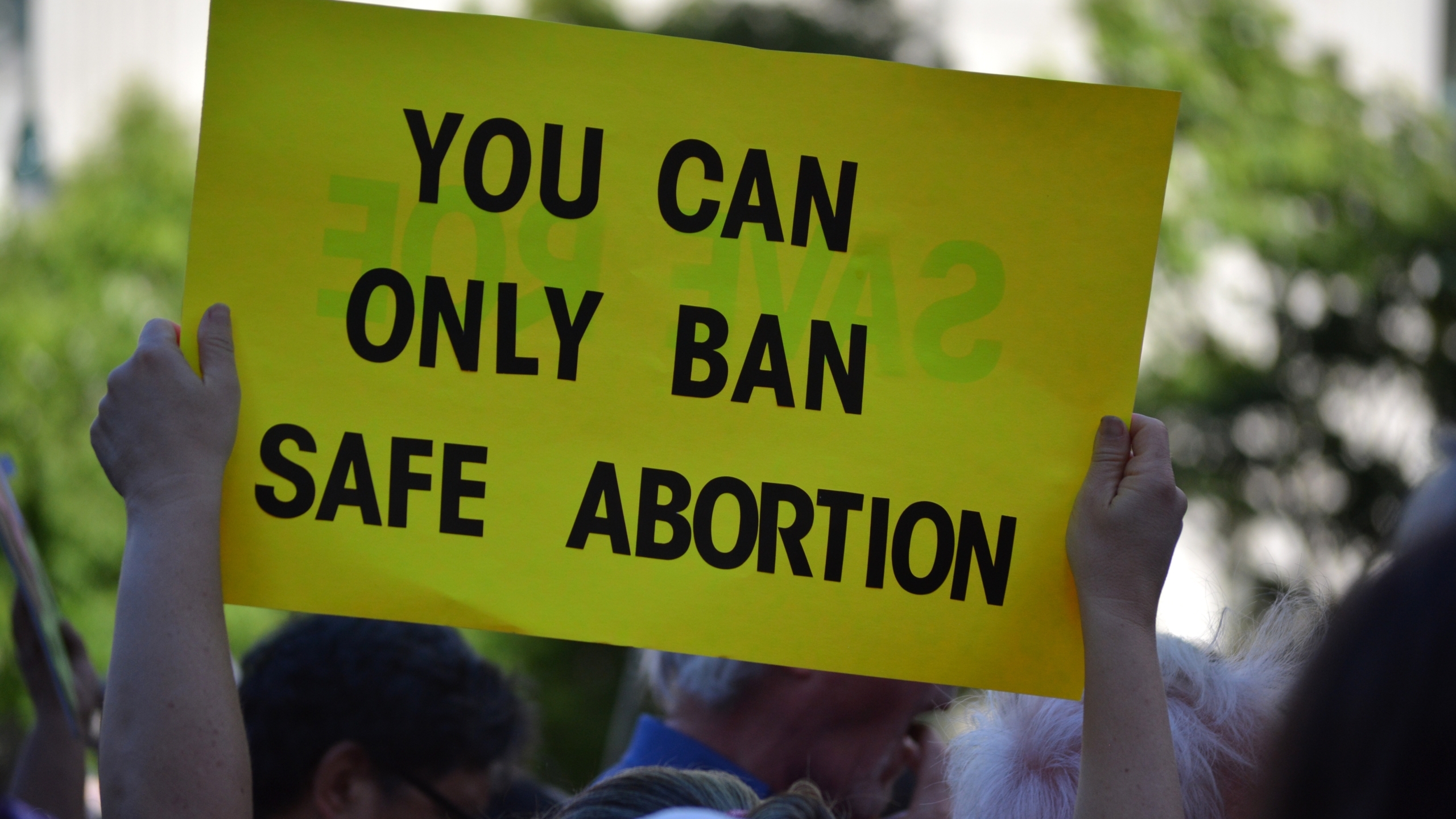Let’s pretend for a moment that I’m Louie Linguini, Tuscaloosa’s finest radio personality. Except I only teach and write. And I won’t take bookings, so I’m not going to play your birthday party or your holiday gig.
(I will, though, show up to your Memorial Day cookout and take care of a few hot dogs ‘n’ burgers. A little pink on the first, chargrill on the second, if you please.)
But like any DJ trying to keep the crowd happy, I take requests, so when a Facebook commenter requested an incitement analysis of some public remarks made a couple of weekends ago at an abortion rights rally in Washington, D.C., I’m all too happy to oblige – however, I can’t promise to arrive at the conclusion you’d like.
Rachel Carmona, the executive director of the Women’s March, said at least two things that might prompt someone to think she was trying to provoke the audience at the May 14 “Bans Off Our Bodies” to illegal action:
- “We will be ungovernable until this government starts working for us, ungovernable. That’s why we are taking to the streets today in cities all across the country.”
- “Today is day one of an uprising to protect abortion rights. It is day one of our feminist future and it is day one of a summer of rage where we will be ungovernable, ungovernable. And we will not stop until the politicians on our side start acting like they’re on our side.”
“Summer of rage” and “ungovernable,” sound bad, don’t they? They make for good headlines, and they sound tough, the sort of comments that might motivate an audience of like-minded people to action. However, under the Supreme Court’s Brandenburg “imminent lawless action” test for incitement, Carmona’s remarks are well within the boundaries of constitutionally protected speech even if they’re uncouth, unsettling or whatever other flavor of unfortunate someone might judge them to be.
Even accepting for argument’s sake that “summer of rage” and “ungovernable” are intentional calls for illegal action aimed squarely at a receptive and willing audience, the fatal constitutional flaw for any state authority looking to sanction Carmona is the problem of temporal proximity, meaning there’s no direct connection in time between her remarks and the proposed violence. While she does say “today” in reference to “taking the streets,” that’s most likely pointing toward constitutionally protected activities like marches and protests; a “summer of rage” and becoming “ungovernable” are long-term and indefinite (for the purposes of First Amendment analysis) propositions.
Not only is the language indefinite, but its sharpness – its political edge and rhetorical violence – is firmly within the boundaries of protected speech under Supreme Court precedent in cases such as Watts v. U.S., a case in which the Court found the statement “the first man I want to get in my sights is L.B.J.” as made by a potential draftee at an anti-war protest to be only violent political hyperbole and not a threat against the life of the president. Similarly in NAACP v. Claiborne Hardware, the Court found that a civil rights leader warning during a Mississippi boycott that “[i]f we catch any of you going in any of them racist stores, we’re gonna break your damn neck” was protected speech because “[s]trong and effective extemporaneous rhetoric cannot be nicely channeled in purely dulcet phrases.” In short, so long as this tough talk does not incite imminent lawless action, the Court has concluded, violent political speech is within the parameters of the First Amendment.
Therefore, we as Americans can argue for violence and all other manner of law breaking so long as it remains abstract and a mere philosophical proposition without the stakes of immediacy that Brandenburg requires. As an illustration of just how far we can go and speech still receive protection, in 2015, a federal district court in New York found that a defendant – one already convicted on charges of making threats – didn’t violate the terms of his home confinement when he wrote in an email that “[v]iolence is the only way” and to “[t]ake to the streets now…[u]nfortunately revolution is required” among other violent ideas.
Generally speaking, it’s harder to find liability for incitement in the case law simply because Brandenburg is so protective of violent speech in the abstract. In 2002, the federal Ninth Circuit Court of Appeals found that a defendant casually discussing gang initiation rites at a party was shielded from criminal liability under Brandenburg because the casual atmosphere “unlikely anyone would act on it imminently.” That same year, a federal district court in Connecticut concluded that the manufactures of “Mortal Kombat,” the bloody video game that’s been a scourge of arcades and home consoles for 30 years now, weren’t liable under a theory of incitement after a boy stabbed and killed his 13-year-old friend.
But that principle of protected abstract violent speech has a limit. In 1996, a federal district court in Maryland determined that the publishers of “Hit Man,” a how-to manual for murder-for-hire, weren’t responsible for a triple murder undertaken by one of the book’s readers. The district court, though, was overruled on appeal by the Fourth Circuit, which viewed the book as so fundamentally instructional in the art of killing that it aided and abetted in the murders.
However, in cases where courts usually find unprotected incitement, the stakes tend to be smaller, more concrete and clearly more immediate. In 1989, an Illinois state appeals court upheld the criminal conviction of a woman who shouted in front of a crowd of 15-20 people “Don’t let him take that man away” as police were attempting to arrest a suspect. Likewise in 2001, a federal district court also in Illinois dismissed a former Chicago State student’s lawsuit challenging his arrest following a false fire alarm at his dorm and his decision to beat on windows and yell in front of a crowd of 300 angry Cougars desperate to get in from the cold.
Even with crowds, police and exigent circumstances, courts have limited the ability to arrest individuals simply for speech. In 2010, a federal district court in Illinois concluded it was a question for a jury to determine whether a plaintiff merely said “If this was a white party, that there wouldn’t be any problems” or if she said a crowd should “beat [the] white police asses” as cops attempted to break up a basketball tournament at a Chicago housing complex – the former, as the court concluded, would be protected speech as citizens have the right to be critical of police even in an emergency, while the latter would be subject to criminal punishment as it was a direct call to violence.
While this might seem to be frustrating, as if some bad actors were getting away with something they shouldn’t, this is the best outcome in a democracy that’s committed to free speech. And that, by the way, is not an absolutist position – when speech truly does cross the Brandenburg line, it should be punished, much in the same way that defamation with actual malice, fighting words and true threats have no place in an ordered society.
Brandenburg keeps us from locking people up merely for “bad” ideas, be they calling for a “summer of rage” from pro-abortion rights protesters or Tucker Carlson spouting the Great Replacement bigotry that prompted the racist shooting in Buffalo. The First Amendment, however, does not insist that we all be nice or polite or civil to one another; in fact, it protects the right to do the very opposite.
It’s enough to leave everyone unhappy.
And that’s the high cost of living in a free society.




















































